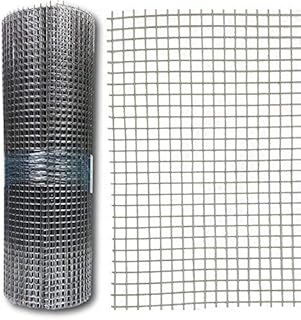7. Rat Traps vs. Rat Poison: Which is the Better Solution?
When dealing with a rat infestation, it's crucial to find an effective solution to eliminate these pests from your home. Two common methods for getting rid of rats are rat traps and rat poison. But which one is the better solution for your specific situation? In this article, we will compare rat traps and rat poison to help you make an informed decision.
1. Rat Traps
Rat traps are mechanical devices designed to capture and kill rats. There are different types of rat traps available, including snap traps, glue traps, and electronic traps. Snap traps are the most traditional type of rat trap, consisting of a spring-loaded bar that snaps shut when triggered by the rat. Glue traps use a sticky adhesive to trap rats, while electronic traps deliver a lethal shock to the rat.
One of the main advantages of rat traps is that they are considered more humane than rat poison. Traps kill rats instantly, minimizing their suffering compared to the slow and painful death caused by rat poison. Additionally, traps allow you to dispose of the dead rats easily, reducing the risk of them dying in hard-to-reach places and causing unpleasant odors.
However, rat traps may not be suitable for every situation. They require regular monitoring and resetting, which can be time-consuming. Traps also need to be strategically placed in areas where rats are likely to travel, which may not always be easy to determine. Some rats may also become trap-shy and avoid them altogether.
People Also Look For:
- HYDRO Mouse Traps 6 Pack, Mice Traps Heavy Duty Reusable Traps That Kill Instantly, Mouse Traps For Indoors, Highly Sensitive Quic...
- ROSHIELD - 5 PRE-BAITED Mouse Poisoning Bait Box Kit | Single Feed Mice Killer | Mouse Traps for indoor/Outdoor Fast & Safe Infest...
- Mouse Traps Mice Traps, 6 Pack Mouse Traps For Indoors That Kill Instantly, Rodent Trap, Mice Kill Mouse Control
- Rat Traps, 4 Pack Super Heavy Duty Instant Kill Traps,Reusable Humane Rat Traps for Mouse Rat Chipmunk,High Sensitive Mice Snap Tr...
- adam & eesa Sticky Pest Control Traps - Pack of 5 Sticky Trap Boards - Extra Strong Multi-Use Gum Sticky Pads - Effective Pest Con...
2. Rat Poison
Rat poison, also known as rodenticide, is a chemical substance designed to kill rats when ingested. There are different types of rat poison available, including anticoagulants, acute toxicants, and non-toxic rodent baits. Anticoagulant poisons work by preventing blood clotting, leading to internal bleeding and death. Acute toxicants act quickly to kill rats, while non-toxic baits use ingredients that are harmful to rats but safe for humans.
Rat poison is often chosen for its convenience and effectiveness. It can be placed in bait stations or scattered around areas where rats are active, making it easy to target multiple rats at once. Poison is also effective at killing rats that may be hiding in inaccessible areas of your home.
However, rat poison does have its drawbacks. One of the main concerns with rat poison is the risk of secondary poisoning. If a rat consumes poison and then dies in your home, other predators or pets may eat the poisoned rat and become sick or die. Additionally, some rats may develop resistance to certain types of poison, making it less effective over time.
3. Which is the Better Solution?
When deciding between rat traps and rat poison, it's essential to consider your specific situation and preferences. If you prioritize humane pest control methods and want to minimize the risk of secondary poisoning, rat traps may be the better option for you. Traps allow you to physically remove rats from your home and dispose of them safely.
On the other hand, if you are dealing with a large rat infestation and need a quick and effective solution, rat poison may be more suitable. Poison can target multiple rats at once and kill them even if they are hiding in hard-to-reach areas. However, it's essential to use rat poison responsibly and follow the manufacturer's instructions to minimize the risk of accidental poisoning.
In conclusion, both rat traps and rat poison can be effective solutions for dealing with a rat infestation. The best option for you will depend on your specific circumstances and preferences. Whichever method you choose, it's crucial to act quickly to prevent rats from causing damage to your property and posing a health risk to your family.



